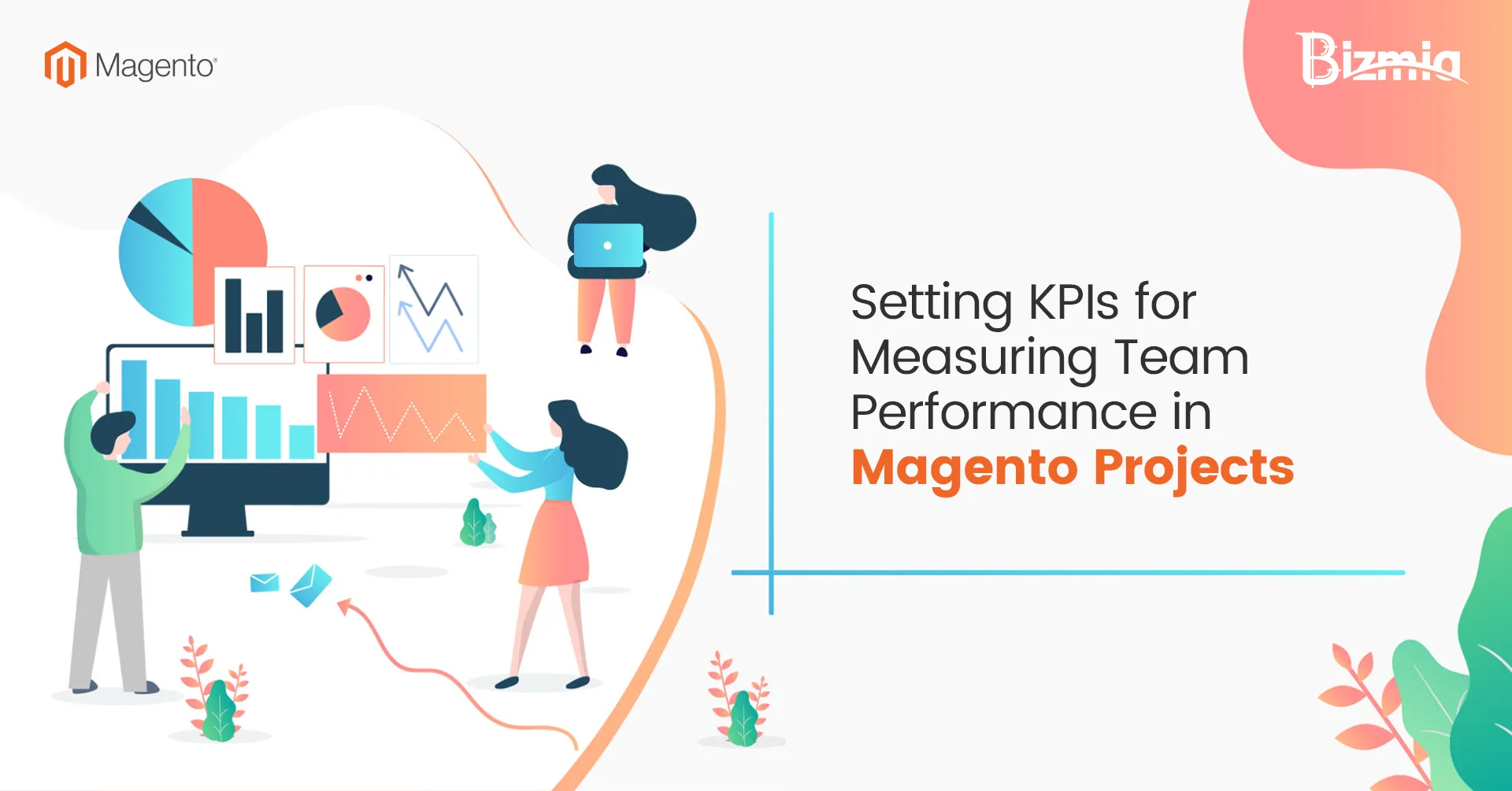Even as the landscape of software development continues to evolve, one constant remains: the importance of measuring team performance. Robust performance metrics help teams stay on track and ensure that the end product meets the highest standards of quality and functionality. This becomes particularly critical when you are working on a Magento projects. Known for its flexibility and complexity, Magento offers endless customization options, but also comes with its own set of intricate challenges. Given these complexities, having a clear set of Key Performance Indicators (KPIs) for your development team is a necessity for your project’s success.
Table of Contents
Importance of Team Performance KPIs in Magento Development
Magento’s complexity and extensive customization options demand specialized skills, making it a challenging platform for eCommerce development. Without proper management, Magento projects can become inefficient, resulting in delays and compromised quality. Key Performance Indicators (KPIs) are crucial to steer the team effectively through these complexities. They offer quantifiable benchmarks for performance, such as code review efficiency and team velocity, tailored to Magento’s specific needs. By setting precise KPIs, teams can objectively assess their performance, identify areas for improvement, and take corrective actions as needed. In Magento’s complex environment, KPIs serve as a guiding compass, ensuring the project’s success.
Core Team Performance KPIs to Consider
Magento projects can be intricate, requiring careful monitoring and agile responses to a myriad of challenges. Having the right set of KPIs can serve as the litmus test for how well your team is performing in the face of these demands. Here are some core KPIs to consider.
Completion Rate vs. Estimation
For Magento projects, having a high degree of accuracy in task estimation is crucial due to the complexity of the platform. One of the KPIs you should be monitoring is the completion rate against the initial estimations. This will not only help you gauge the team’s efficiency but also provide insights into the project’s overall health. If you’re consistently missing the mark, it may be time to reevaluate how the team approaches task estimations, specifically with Magento’s unique requirements in mind.
Code Review Efficiency
Magento’s backend development is a complex beast that demands robust code review practices. Therefore, a key performance indicator is how efficiently peer code reviews are carried out. This involves both the speed at which code reviews are completed and the quality of the feedback. The faster and more effective these reviews are, the quicker you can move through development sprints, leading to more agile project timelines.
Team Velocity
In agile development, velocity measures how much work a team can complete in a given sprint. Given the intricacies involved in Magento projects, such as custom module development and third-party integrations, it’s imperative to track how well your team adapts and completes tasks. A consistently low velocity might signify that the team is struggling with the Magento-specific complexities, necessitating retraining or restructuring.
Inter-Team Communication Quality
Effective communication is vital in any development project but is even more critical in Magento development due to its multifaceted components. Inter-team communication quality can be measured through regular check-ins and feedback loops, or even quantified through tracking the number of blockers removed after internal meetings. Good communication can smooth out many bumps in the road, making the development process less disruptive and more streamlined.
Role-Specific KPIs in Magento Projects
The collective success of a Magento project is the sum of its individual contributors. In the complex world of Magento development, each role has its own unique set of challenges and skill requirements, which is why setting role-specific KPIs can be highly beneficial for team performance. Let’s delve into some of these metrics for various roles within a Magento project.
Developer Efficiency
Backend and Frontend Developers face unique challenges when it comes to Magento’s layered architecture and modular approach. One of the key KPIs for developers is ‘stories completed per sprint.’ This measure can help you evaluate individual performance and resource allocation, ensuring that developers are neither overwhelmed nor underutilized. Moreover, it also acts as a yardstick to measure how efficiently developers are adapting to the nuances of Magento-specific coding requirements.
DevOps Deployment Success Rate
Magento’s architecture is complex, often involving various moving parts like databases, caches, and third-party integrations. This complexity makes the role of DevOps critical in ensuring a stable environment. Therefore, it’s essential to measure the ‘Deployment Success Rate,’ which is the ratio of successful deployments to the number of failed ones. A lower success rate could indicate that the DevOps team is facing challenges specific to Magento’s architecture, signaling the need for more specialized training or additional resources.
Quality Assurance Efficiency
Lastly, Given that Magento involves a variety of features, modules, and often custom extensions, the role of Quality Assurance (QA) is indispensable. One of the KPIs to track is the speed and thoroughness of quality checks within the context of Magento’s specific requirements. This can be measured through metrics like ‘Defect Detection Rate’ and ‘Test Case Execution Speed.’ Ensuring that QA can efficiently handle Magento-specific complexities like multi-store configurations and custom module validations is vital for the overall success of the project.
Setting and tracking Key Performance Indicators (KPIs) is not just beneficial but essential for any Magento project. Due to the platform’s inherent complexities, KPIs serve as a navigational compass, helping teams align their performance with project goals. It’s crucial to remember that the landscape of technology and project demands are ever-evolving. Therefore, teams should be prepared to adapt their KPIs as the project progresses, ensuring that these metrics are always in sync with the unique and specific challenges that Magento development entails.
Bizmia’s growing talent pool of experienced Magento professionals provides the performance and scalability you need for projects of any size. To learn more about the advantages of leveraging remote eCommerce developers, please reach out to a Bizmia expert today.












